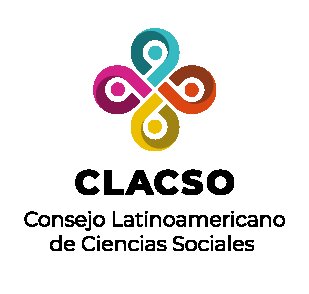Authors
Abstract
Abstract:The following analysis explains the scope of the way in which citizenship is exercises in the Colombian Democracy. In order to do this, it is important to consider that, in the development of this reflection, the concept of citizenship and some theoretical elements about the relationship between political socialization and political culture and about the political perspective proper to liberal democracy are revised. In the understanding of this theoretical referent and its empirical reality, it is necessary to attentively observe the effects and/or the consequences of the production and reproduction phenomena which, in the advances capitalist societies create what Boaventura de Sousa Santos defines as excesses of regulation of modernity As much as it is intended to search for the improvement of the citizen’s role in the formulation and development of the public politics, the idea of strengthening the social and political inclusion mechanisms in the context of the local public management is suggested, which would favor the development of organizational forms that allow the emergence of a social and political participation model which translates, in a holistic way, the expectations of the new social individuals and the New Social Movements (NSM). In accordance with the principle of active citizenship proposed by Norbert Lechner, the formation of interactive political structures and processes (communicative in the citizen education) would contribute to the establishment of participative democracy.
References
Álvarez, Raúl. (2006). Democracia participativa. Estructura y dinámica política. Hipertexto, cienciapolitica.4t.com/main.html free servers.
Barnes, Samuel; Max Kaase et al. (1979). Political Action. Beverly Hills, CA: Sage.
Bobbio, Norberto. (2005). El futuro de la democracia. México: Fondo de Cultura Económica.
De Soussa Santos, Boaventura. (1998a). De la mano de Alicia. Bogotá: Siglo del Hombre Editores-Ediciones Uniandes.
De Soussa Santos, Boaventura (1998b). Subjetividad, ciudadanía y emancipación. De Tortolero, Evelyn M. & Castellano, Rafael. (2005). “Desarrollo Regional. Una perspectiva histórica de la participación ciudadana. Caso: Parroquia Santa Rosa del Municipio de Valencia”. Mañongó. Nº 25, 2005.
Del Águila, Rafael. (1997). Manual de Ciencia Política. Madrid: Editorial TROTTA.
Del Río Hernández, Mirtha Arely. (2002). “El derecho de participación ciudadana en la toma de decisiones públicas en el ámbito municipal”. Artículo. UCVL, Cuba.
Espinosa, Mª Ángeles & Ochaíta, Esperanza. (1999). Necesidades y Derechos de la Infancia y la Adolescencia.
Gallego Medina, Carlos. (2008). “La Gestión Social Integral en el contexto de la gestión pública participativa”. En La Gestión Pública Participativa en el Contexto de la Gestión Social Integral. Universidad Nacional de Colombia, Departamento de Ciencia Política. Bogotá.
Kymlicka, Will & Wayne, Norman. (1996). El retorno del ciudadano. Una revisión de la producción reciente en teoría de la ciudadanía. University of Ottawa. Versión en castellano reproducida en Cuadernos del CLAEH, 75, Montevideo.
Lechner, Norbert. (1997). El Malestar con la Política y la Reconstrucción de los Mapas Políticos. México.
Ley de la Juventud. Ley 375 de julio de 1997 López Cerezo, José; Méndez Sanz, José & Todt, Oliver. (1998). “Participación pública en política tecnológica. Problemas y perspectivas”. Revista Arbor, España, CLIX (627), Marzo de 1968
Mouffe, Chantal. (1999). El retorno de lo político. Comunidad, ciudadanía, pluralismo, democracia radical. Paidós 1999
Moya, Miguel & Morales, Francisco. (1998). “Panorama histórico de la psicología política”. En Seoane, Julio & Rodríguez, Ángel. Psicología política. Madrid: Editorial Síntesis.
Muñoz, Germán. (2002). “Temas y problemas de los jóvenes colombianos al comenzar el siglo XXI”. Seminario Nacional sobre Seguridad y Convivencia. Secretaría de Gobierno. Alcaldía de Bogotá.
Pérez, Jesús Ignacio. (1994). Descentralización educativa. Revista Iberoamericana de Educación, Número 4, enero – abril de 1994.
Pressacco, C. et al. (2000). Descentralización, municipio y participación ciudadana. Bogotá: Ediciones CEJA.
Ramírez, Martha Lucía. (2006). “Transferencias de la nación a las regiones en Colombia. Situación de los municipios y las regiones”. Programa radial, Hora 20 de Caracol. Julio 23 de 2006. Hora: 9 p.m.
Reguillo, Rossana. (2003). “Ciudadanías Juveniles en América Latina”. Revista del Centro de Investigación y Difusión Poblacional, Chile. p.1. SIN 0717-4691.
Rodríguez, A. (1998). “Socialización política”. En Seoane, Julio & Rodríguez, Ángel. Psicología política. Madrid: Editorial Síntesis 1998
Sánchez T., Carlos Ariel. (1996). “Participación ciudadana, participación democrática y censo electoral en Colombia”. Capítulo V. Modernidad, Democracia y Partidos Políticos. Bogotá: FIDEC.
Sarmiento, Libardo. (2003). “Política pública de juventud en Colombia”. Seminario Internacional de producción de información y conocimiento para la formación de política pública de juventud. CINDE, UNICEF, otros. Mayo 7, 8 y 9.
Sartori, Giovanni. (1999). “En defensa de la representación política”. En Claves de Razón Práctica.. No. 91, España. 1999.
Seoane, Julio & Rodríguez, Ángel. (1998). Psicología política. Madrid: Editorial Síntesis. Serrano, Claudia. (1998). Participación social y ciudadanía. Un debate del Chile contemporáneo. División de Estudios MIDEPLAN. Chile.
Touraine, Alain. (1997).¿Podremos vivir juntos? México: Fondo de Cultura Económica.

 PDF (Español)
PDF (Español)
 FLIP
FLIP
























